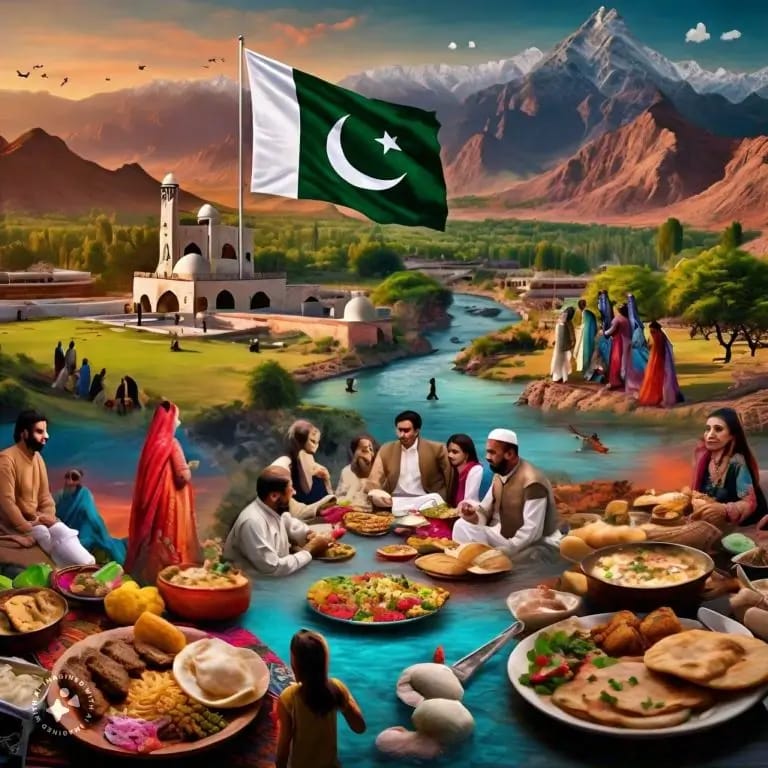By: Zara Amoon
October 2nd marks the International Day of Non-Violence, a global observance dedicated philosophy of peaceful resistance. For Pakistan, a nation with a history of conflict since its inception in 1947, the message of non-violence carries particular significance, offering a blueprint for addressing the challenges of sectarian, political, and societal violence.
A Complex Historical Relationship with Non-Violence:
Pakistan’s birth was marked by the violent partition of British India, yet its founding leader, Muhammad Ali Jinnah, envisioned a state based on peaceful coexistence. Jinnah’s speeches advocated for equality, religious freedom, and justice for all citizens, irrespective of faith or ethnicity. In his landmark speech on August 11, 1947, Jinnah promoted a vision of pluralism, urging for harmony between Pakistan’s diverse communities.
However, this ideal has often been overshadowed by the country’s post-independence history, marked by internal strife and political unrest.
Yet, there have been significant non-violent movements in Pakistan’s history. One such example is the Khudai Khidmatgar (Servants of God) movement, led by Khan Abdul Ghaffar Khan, also known as Bacha Khan. His philosophy of non-violence and his movement’s commitment to peaceful resistance against British colonial rule remain powerful symbols of non-violent activism in the country.
Non-Violence in Contemporary Pakistan:
Today, Pakistan faces numerous challenges where the principles of non-violence could play a crucial role, particularly in addressing ethnic and sectarian tensions, political polarization, and the persistent threat of extremism. Despite its diverse population, the country continues to experience ethnic and sectarian issues, with clashes reported between different ethnic groups.
Organizations such as the Pakistan Institute for Peace Studies (PIPS) have worked to foster dialogue between religious and ethnic communities, emphasizing peaceful conflict resolution as a way forward. The International Day of Non-Violence serves as a reminder that only through understanding and dialogue can these deep-rooted divisions be bridged.
Political Confrontations and the Use of Force:
Pakistan’s political landscape has often been characterized by confrontation, with rival political parties resorting to protests and strikes that sometimes turn violent. The authorities has also used heavy-handed measures to suppress dissent, further deepening political divides.
Advocates of non-violence argue that peaceful political activism, grounded in dialogue, is essential for strengthening democratic institutions. Recent political movements, including large-scale protests by a particular political party, demonstrate the need for non-violent approaches to civil disobedience. These movements highlight how both protesters and the state can benefit from resolving conflicts without violence.
Countering Militancy and Extremism:
One of Pakistan’s most pressing challenges is the rise of militancy and terrorism, particularly since the 1980s. Extremist groups have resorted to violence to impose their ideologies, challenging both state and society. While the military has taken action against these groups, non-violent strategies, including de-radicalization programs and promoting inclusive narratives, have also gained prominence.
Civil society organizations like the Edhi Foundation and Aurat Foundation have been at the forefront of promoting social welfare, education, and peace. Their work underscores the importance of addressing the root causes of extremism and fostering a culture of non-violence. The International Day of Non-Violence offers an opportunity to amplify such efforts and highlight peaceful alternatives to the cycle of violence.
The Legacy of Pakistan’s Peace Advocates:
Pakistan has produced several prominent advocates of non-violence who continue to inspire the nation. Malala Yousafzai, the Nobel laureate and education activist, has become a global symbol of non-violent resistance after surviving an assassination attack. Her work emphasizes the role of education in promoting peace and tolerance.
Asma Jahangir, the late human rights lawyer, was another tireless advocate for non-violence. Through her legal work, Jahangir defended marginalized communities and challenged state oppression, demonstrating how peaceful activism can bring about change.
Challenges to Embracing Non-Violence:
Despite these examples of peaceful resistance, Pakistan faces significant obstacles in fully embracing non-violence. Impunity for violent actors—whether extremist groups, political militias, or state forces—continues to undermine efforts for peaceful conflict resolution. Additionally, the media’s focus on sensationalist coverage of violence often overshadows peace initiatives.
A broader cultural shift is needed, one that values empathy, dialogue, and non-violence as central to a functioning democracy.
Conclusion:
As Pakistan observes the International Day of Non-Violence, it is an opportunity to reflect on the potential of peaceful resistance in addressing the country’s most pressing issues. Figures like Bacha Khan, Malala Yousafzai, and Asma Jahangir remind Pakistanis of the power of non-violence to bring about lasting peace and justice. Going forward, fostering a culture of dialogue and tolerance could help the nation overcome its legacy of conflict and build a more peaceful future.


